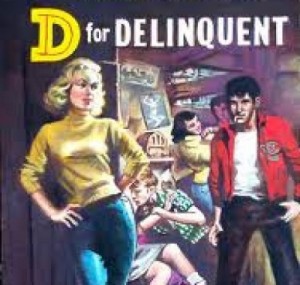pdf: howlings in favour of ourselves
(March 2010)
“And their revolts became conformisms”
– Guy Debord, ‘Howlings in Favour of Sade’, 1952.
“The organized theoretical effort (the most advanced since Marx) carried out by the members of the Situationist International has not only burned itself out, it seems content to accept a place among the curiosities in the museum of revolutionary history. Rather than trying to get back on its feet, this fallen theoretical dragon prefers to pride itself on the still-impressive reverberations from its past exploits — exploits that are becoming distant enough to take on a comfortingly legendary character.
The misadventures of the situationists’ theory and those to which comparable movements of revolutionary intellectuals in the past succumbed are finally reunited in the very nature of their failures. Just as with Marxist thought and other later efforts to develop a revolutionary critique, all the achievements of the real situationist theoretico-practical effort ended up undergoing a total inversion of their meaning. They now constitute nothing more than one particular form of cultural verbiage within the general pseudocommunication imposed by existing conditions, a pseudocommunication that is as prevalent among those who revolt against those conditions as among those who accept them.
The real situationist spirit, the spirit that (to those capable of grasping undertakings of this order) was so clearly at the origin of the situationist adventure, no longer has any choice but to turn without mercy against the edifice of its own petrified theory, against its entire past and its former values, or else be swept from the revolutionary battlefield as a source of useless and antiquated verbosity.” – Daniel Denevert, “Theory of Poverty / Poverty of Theory”, 1973
Description of a concrete but trivial situation which illustrates some of these contradictions
“An important Lettrist commando made up of some 30 members, all donning the filthy uniform that is their only really original trademark, turned up…with the firm desire of indulging in some scandal capable of drawing attention to themselves” – G. Debord, 1952, op cit
Friday, 5th March at Théatre Grammont near Zenith just outside Montpellier, France, a few people preferring to entertain themselves rather than be entertained, decided to take the piss out of the ridiculous spectacle of the critique of the spectacle “Scanners” with its pretentious subtitle “Howlings in favour of Guy Debord”.
“Art begins, grows and disappears because frustrated men bypass the world of official expression and the festivals of its poverty”– G. Debord, op cit.
One of the frustrated women and men – Nico de Bergerac, who had managed to avoid paying to see this pathetic farce, howled very loudly in favour of Debord but against the stage. An attendant came and asked him to leave. He refused. He continued, in bad but comprehensible French, to take the piss out of the play. When the actors, quoting Debord, said “The spectacle is the Guardian Angel of Sleep”, the man began snoring very loudly.
“Cinema is dead. There can’t be film any more. If you want, let’s have a discussion” –G. Debord, op cit.
Theatre is dead. There can’t be plays any more. If you want, let’s have a discussion…but when the actors said “The spectacle is the absence of dialogue” NdeB shouted, “So why don’t we stop this and develop some dialogue….What are we going to do against Sarkozy and all the others…?” But nobody wanted to develop this dialogue apart from his friends next to him. He also shouted out “You’re prisoners of intellectual abstractions – you do nothing”. So when another attendant came and whispered an invitation to a discussion outside, he loudly refused, saying “It’s here inside that this critique is relevant”. When an actor came up to him to invite him to go onto the stage and explain what he wanted to say, he invited the man to sit down next to him to watch this “bullshit of a play”, adding he neither wanted to be a spectator nor a spectacle (“spectacle” should really be translated as “show”, but because of the way this word has been translated as “spectacle” for 40 years by situationist-influenced people, we stick to this generally accepted translation). When later, yet another attendant came up to him and asked him to whisper when talking to his friends, he, once again loudly, shouted that it was like a church here – like you had to talk in a low voice whilst the priests on the stage monologued their message loudly. When, for the 100th time, there was yet another quote from Debord denouncing the passivity of the spectators, a woman amongst us, shouted out, “The truth is a moment of the false”.
When a 5th attendant came and asked him, in a threatening manner, to leave because he had no respect for the actors, he cried out loudly that the guy was a cop, and that of course he had no respect for people who contradict themselves so overtly (anyway, what did they expect us to do given a so-called critique of our passivity? – – perhaps they should have changed the sub-title of this play to “Howlings in favour of Masoch”). When a member of the audience shouted – “If you don’t like the show – why don’t you go home?” , NdeB shouted, “Yeah – it’s like the old cliché from over 20 years ago – if you don’t like it here, why don’t you go to Russia?”. During 12 minutes of silence that the playwright had plagiarised from the far more eloquent expressive silences of Debord’s 1952 film, the group talked a bit amongst themselves and with members of the audience much to the annoyance of the cast. And so it continued, up until finally NdeB shouted “This play is completely against the spirit of Debord”, to which about 20 people (out of an audience of about 250) clapped (without expressing directly their discontent: when people are too anxious or indifferent to expressing themselves in a way which is not intellectually “correct”, when they feel the need to be “perfect”, and avoid suppressing their passivity, avoid seeing themselves from a perspective of making progress in their journey against this world which destroys self-confidence, they put on a pedestal, those who dare, however imperfectly, to express the ideas in their own heads ). We have to say that all this recounted here was not always expressed so coherently as we have delineated: when you try to subvert a situation, you always have to make new mistakes – those who never make original mistakes never make anything.
Amongst others who congratulated us, there was a Middle Class bohemian who said that the intervention was crude and not at all coherent and that NdeB should see a psychoanalyst.
“Article 489. The adult who is in a constant state of imbecility, dementia or mad rage must be detained even though his state allows for intervals of lucidity…The …police force is thirty thousand truncheons strong.” – G. Debord, op cit.
However, for us, it was a really funny evening…but “We live like lost children, our adventures incomplete” – last line of Debord’s 1952 film (made when he was 21), after which there is silence for 24 minutes, during which the screen remains black.
The next day, Saturday 6 March, NdeB was invited to a restaurant he’d never been to by a friend and 3 other people who he’d just met for the first time. After 10 minutes, by chance (this restaurant was at least 3 miles from the theatre) one of the actors – Alexandre Morand – came in, and stared at ‘our hero’ before going downstairs to the tables down in the basement. After 20 minutes, Moron, who’d gone to the toilet opposite the table where NdeB was sitting, came out of the toilet, glared furiously at him, and, when NdeB looked him in the eyes, shouted “You got a problem???!!!…You disrupted our play – but you’re a coward, a coward, a coward…” (clearly a reference to the flippantly whimsical playwright Noël), and he ‘invited’ him threateningly to ‘join’ him outside. NdeB was about to join him – in a battle he had a good chance of losing – but was restrained by his friend.
It seems, as A. Moron later explained to a friend who was also a friend of NdeB (with neither of them knowing that they had a friend in common), that he simply wanted to begin a discussion with him (“Everyone detests you because you lie” – G. Debord, op cit.). NdeB screamed agressively, threateningly, “Yes I’m a coward, a coward, a total coward!” as Moron retreated down the stairs to the basement. The others at his table knew next to nothing about Debord (our Pope), and were, apart from his friend, completely unaware about what had happened the evening before. Then, after about another 20 minutes, the director of the sad farce “Scanners” , David Ayala, who nobody knew, arrived, invited himself to sit at the table where the others were having a meal, introduced himself, and accused not only NdeB of having disrupted his precious play, but also the others who knew fuck-all about it. When this provocative ‘invitation’ to a ‘discussion’ was refused (after all, NdeB had only just met 3 of the 4 others at the table and knew very little about them), Ayala, screamed that NdeB was a coward, was stupid and knew nothing at all about Debord (for what it’s worth, and without wanting to pull rank, it should be pointed out that NdeB had helped organise the printing and distribution, for free – through the temporary expropriation of student union facilities – of the 2nd edition of the English translation of “Society of the Spectacle” – the one on which all the subsequent English translations were based – way back in 1973 and had financed the first printing of Ken Knabb’s “Situationist Anthology” in 1981). Like Moron before him, Ayala also invited him outside for a “discussion”. Restrained verbally by his friend and by a waiter, NdeB once again screamed agressively, this time a bit threateningly with a mad edge, “I’m a coward! I’m stupid! I know nothing about Debord!” and Ayala was joined , for battle, by 2 other members of his troop, whilst a waiter intervened to separate NdeB from these ridiculously self-important people, VIPs with the illusion of having something significant to say.
In Greece, about a year ago, a play showing the struggle and violent attacks against Konstantina Kouneva, a woman cleaner and base trade unionist who initiated some strikes against a super-exploitative cleaning worker agency, was attacked by people who, correctly, felt that this show was a recuperation of a practical movement against this world, and they managed to stop the show during its premiere, the show never running again. The best aspects of the Greek movement, which is currently exploding everywhere, refuses this type of false opposition, this representation of a critique which attacks representation and which has nothing to do with taking real risks against this shit world. In a world that is truly upside down, cowardice is the accusation of those who are truly cowardly.
In describing this situation we don’t want to give importance to these fleas, nor to give ourselves an importance in having attacked them, but to show that a critique of critical “culture” is a moment in our struggle for a genuine critique that helps us develop our struggle for freedom.
“The art of the future will be the overturning of situations or nothing.”
– Guy Debord, “Hurlements en faveur de Sade”.
For those who enjoy gazing at exhibits in the museum, Ken Knabb has now edited an English-dubbed version of Debord’s film here


Leave a Reply